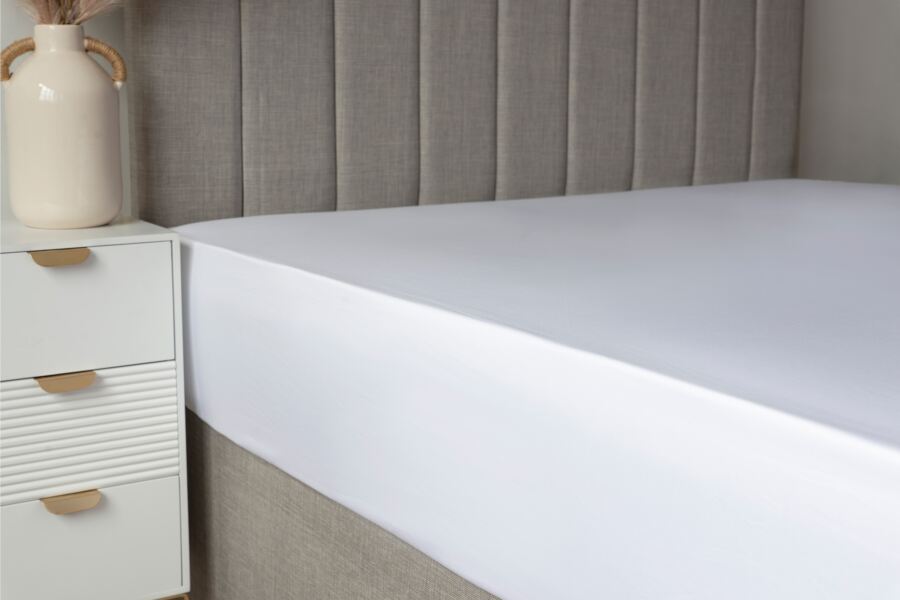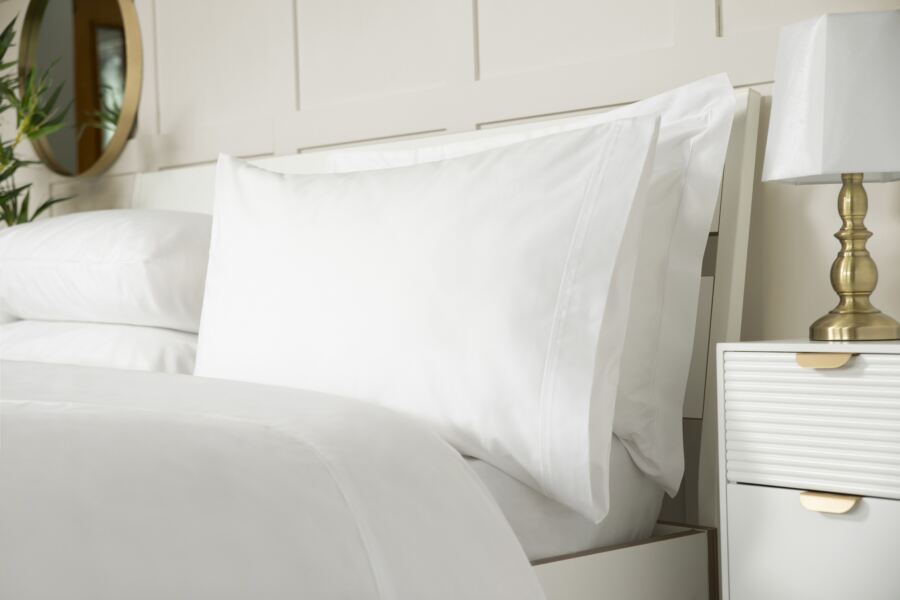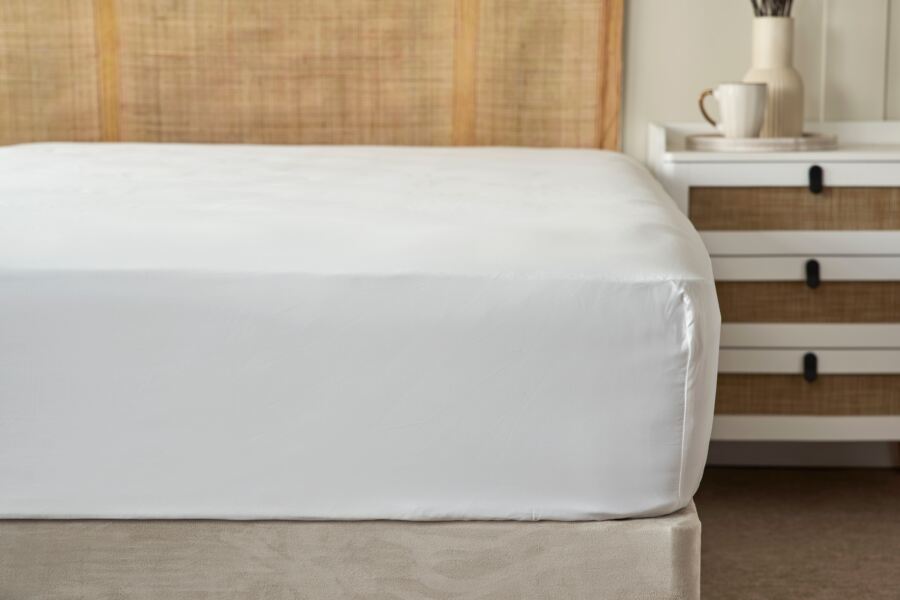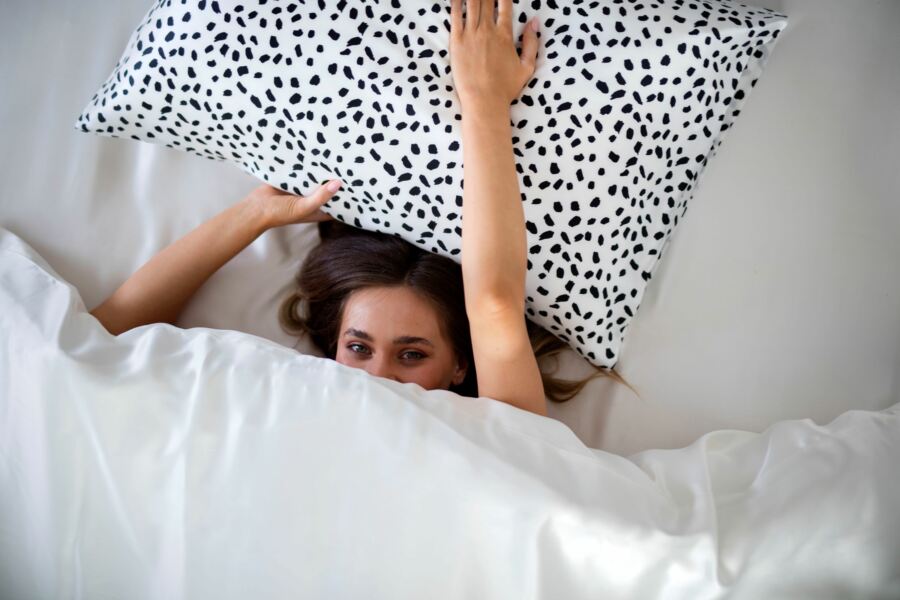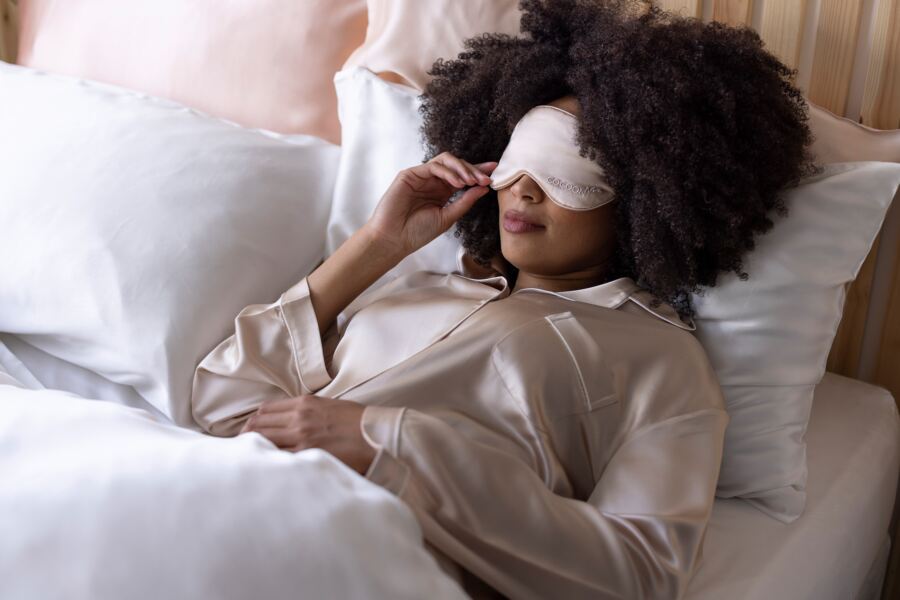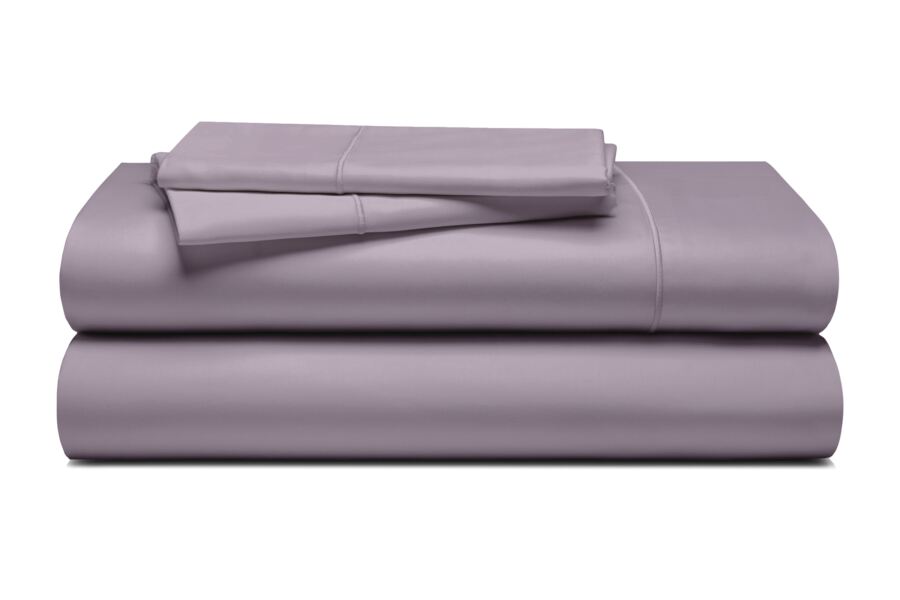Table of Contents
- Invest In Your Bedroom
- Track Your Sleep Cycle
- Create A Consistent Sleep Schedule
- Minimise Screen Time Before Bed
- Diet And Hydration
- Physical Activity And Exercise
- A Few Other Tips To Wake Up Feeling Refreshed
- FAQs
- Final Thoughts
A good day starts at night—getting good-quality sleep is the most critical part of your day. Nights filled with tossing and turning and dreading your alarm is a guaranteed way to feel sleep-deprived.
Getting a good night's sleep has many benefits. It improves your mood, cognitive function, and motor skills, boosts your health, makes you more productive during the day, and gives you more energy.
We get it, though. Meeting your sleep needs can be challenging. That’s why we’re here to provide some easy-to-implement and inexpensive ways to improve your sleep quality, so you can wake up feeling refreshed.

Invest In Your Bedroom
Investing in your nest is one of the best ways to ensure that you recharge overnight and wake up feeling refreshed. Creating an environment with good quality bedding and sleep accessories is an easy and effective way to improve sleep quality and habits.
Good quality bedding
A restful sleep starts in a comfortable bed - not too hot and not too cold, for a start. Invest in good-quality bed sheets with thread counts between 200 and 600. These will make for soft, durable, and breathable bedding that will be an excellent long-term investment in the quality of your sleep.
Some materials to look out for to ensure you wake up feeling more refreshed include:
-
Egyptian cotton (400 thread count): Matte weave, Sateen
Bedtime accessories: The eye mask
Eye masks aren't just for looking glamorous. They block out light which provides incredible benefits to sleep.
Benefits
-
Blocks out light, which regulates circadian rhythm and melatonin production.
-
Reduces reactions to external disturbances like light and an unfamiliar environment (if you are travelling, for example).
-
Enhances relaxation and comfort.
-
Enhances rapid eye movement sleep (REM). Exposure to light can disrupt this cycle.
Best eye mask material
Silk is the ideal material for an eye mask. Its natural fibres are gentle and nourishing on the skin and can even prevent wrinkles. Consider investing in the Cocoonzzz Silk Eye Mask to enjoy these benefits.

Track Your Sleep Cycle
Each sleep cycle lasts roughly 90 minutes and consists of four stages: non-rapid eye movement (NREM) one, NREM two, NREM three, and rapid eye movement (REM sleep).
Waking up at the end of a cycle, usually after 90 minutes, will make you feel more refreshed and alert. This is because you wake up during a light sleep phase, making it easier to transition to wakefulness. The impact of waking up during a deep sleep phase (NREM 3) can leave you feeling tired and moody for the whole day.
Using an app is a practical way of tracking your sleep so you can be woken up at the ideal time. They track your cycle and wake you during light sleep. Smartwatches are also great investments for monitoring your sleep, as they often have built-in sleep-tracking features.
Create A Consistent Sleep Schedule
Create and stick to a consistent sleep schedule to reset your body's internal clock. All you need to do is decide on a bedtime and wake-up time (NB: don't hit snooze!). By going to bed and getting up at the same time every day, you create a regular sleep schedule and enforce strong sleep habits.
It is crucial to ensure that your schedule is realistic. A more realistic wake-up routine will be much easier to follow than one you must prepare for. A good tip is to get seven to eight hours of sleep per night, adjusting your bedtime rather than your wake-up time.
Apart from avoiding morning grogginess, some other benefits of creating a consistent sleep schedule include:
-
Circadian rhythm regulation
-
Improved mental health
-
Improved daily performance and productivity
Minimise Screen Time Before Bed
Avoid looking at screens a couple of hours before bedtime to ensure you fall asleep faster and are more likely to stay asleep. As a result, you will wake up feeling more rested and get a better start to your day.
The blue light emitted from screens does the opposite of relaxing your brain. It disrupts your body's sleep-wake cycle by interfering with your circadian rhythm and melatonin production. It's advised to put your screen away at least two hours before you go to bed.
Things you can do instead of screen time:
-
Read a book.
-
Take a relaxing bath. To make it more deluxe, use good quality towels and wrap yourself up in a nightgown when you're done.
-
Draw or colour in.
-
Do crosswords or Sudoku.
-
Listen to meditative music.

Diet And Hydration
What you eat and drink before bedtime impacts your sleep quality and how you feel in the morning, and can negatively affect your blood sugar levels and metabolic activity. Let's look at what you should and shouldn't consume before bed to feel fresh the next day.
Foods and drinks to avoid two to three hours before bed:
-
Caffeinated drinks: Energy drinks, coffee, black tea, and fizzy drinks.
-
Refined sugar: Sweets, chocolates, and cakes.
-
Alcoholic beverages
-
Rich foods: Fatty, fried, or overly spicy foods.
Foods and drinks that are good to consume before bed:
-
Herbal teas like chamomile and lavender tea have calming properties and will help you fall asleep.
-
Water
-
Warm milk contains tryptophan, an essential amino acid that can help you fall asleep.
-
Light snacks like whole-grain biscuits or crackers, fruit, or a bowl of porridge. These foods will ensure that you don't wake up hungry in the middle of the night.
-
Nuts, like almonds and walnuts, promote sleep as they contain magnesium and melatonin.
Physical Activity And Exercise
Regular exercise has many health benefits. One of the most significant is improved sleep, which can lead to waking up with more energy. Here are some reasons why:
-
Reduces anxiety and stress.
-
Allows you to expend leftover energy.
-
Increases the time spent in NREM 3 during the sleep cycle.
-
Reduces symptoms of sleep disorders like insomnia.
The best time to exercise to promote better sleep is in the afternoon or evening. If you exercise in the evening, however, avoid high-intensity training (HIIT). Yoga or light walks later in the day will promote better relaxation.
A Few Other Tips To Wake Up Feeling Refreshed
You can incorporate a few other small actions (that give you big results) into your daily routine to ensure you wake up feeling refreshed.
Manage your stress and anxiety
Taking care of your mind is crucial to experiencing relaxed and undisturbed sleep. If you are anxious or stressed, chances are you won't be able to sleep well as your body is in a state of fight or flight. Below are some things you can try to alleviate stress and anxiety:
-
Perform meditation and breathing exercises before bed and throughout the day.
-
Create a relaxing bedtime routine - light candles, take long baths, listen to soft music, or read.
-
If you need professional help, chat with a psychologist, your GP, or a sleep medicine specialist.

Personalise your wake-up routine
Everyone is different, which is why it's vital to listen to what your body needs and create a morning routine that works for you. Before starting your day, you can incorporate morning exercise, make a nutritious breakfast, journal, or meditate.
Stop hitting the snooze button
You may think that getting an extra 10 minutes of sleep will give you more energy, but you are doing yourself a disservice. Hitting the snooze button (once or repeatedly) interferes with your body's natural sleep-wake cycle. This causes grogginess, impaired cognitive function, delayed wake-up, and affects your stress levels and mood throughout the day. Hitting snooze is not worth it!
FAQs
Is it hard to wake up when you have blackout curtains?
Yes, waking up can be more difficult if you have blackout curtains. Morning light exposure is vital to ensure you feel refreshed, as natural light wakes you gradually. Blackout curtains result in a much darker room. Due to the lack of natural light, you wake up abruptly - making it much harder!
How much sleep do you need to wake up feeling fresh?
An adult needs seven to nine hours of sleep to wake up refreshed. Young children and teens often need more, usually eight to 13 hours of sleep.
Why do children need more sleep than adults?
Children's brains and bodies need rest and sleep to grow and mature - and most growth for them happens while they sleep. Babies up to one year old generally need between 12 and 16 hours of sleep within a 24-hour period, for example, as they are developing both physically and mentally.
Final Thoughts
Waking up refreshed is achievable if you incorporate these simple steps into your daily routine. Tracking your sleep cycle and learning how to improve it is a practical first step to waking up prepared to face the day. Implementing a consistent sleep routine and minimising screen time will also be highly beneficial.
Investing in your bedroom is also a game-changer for getting better quality sleep. Check out our 450 Pima cotton, Egyptian cotton (400 thread count) Matte weave and Sateen and 540 thread count Satin Stripe sheets. Our Cocoonzzz Silk Eye Mask Bundle with a Pillowcase is also a must-have bedtime accessory to ensure you wake up feeling refreshed.
As we said, a good day starts with a good night's sleep.

